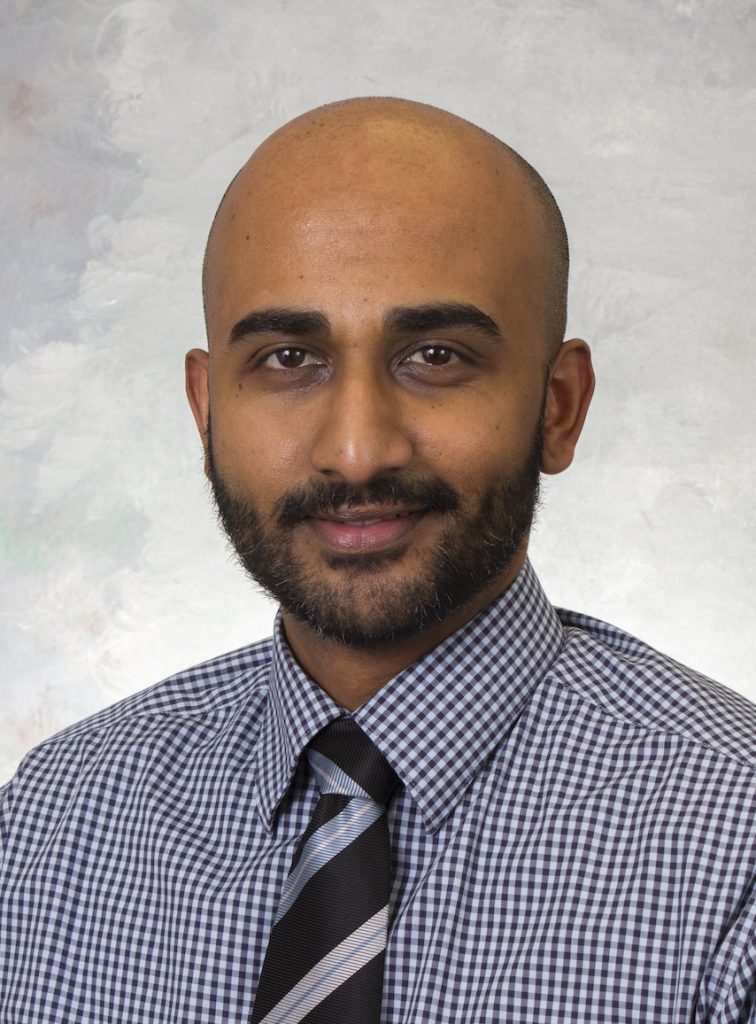Romesh Nalliah: Study bolsters push for dentists to treat pain with non-opioids2 min read
Ann Arbor, Mich., March 17, 2020 – A new study about the use of opioids to control pain when teeth are extracted indicates other pain medications are just as effective or more so.
Co-author Romesh Nalliah, Associate Dean for Patient Services at the School of Dentistry, said the study indicates that the use of opioids by dentists can be drastically reduced or eliminated altogether.
Opioid addiction and overdoses have become a national epidemic in the last decade, leading to calls for healthcare providers to write fewer opioid prescriptions or use alternative pain medications, such as acetaminophen.

Nalliah, a Clinical Professor of Dentistry in the Department of Cariology, Restorative Sciences and Endodontics, worked on the study with co-author Dr. Chad Brummett, Director of the Division of Pain Research and of Clinical Research in the Department of Anesthesiology at Michigan Medicine, U-M’s academic medical center.
More than 325 dental patients who had teeth removed were asked to rate their pain and satisfaction. About half of the study’s patients who had surgical extraction and 39% who had routine extraction were prescribed opioids. Researchers compared the pain and satisfaction of those who used opioids to those who didn’t.
“I feel like the most important finding is that patient satisfaction with pain management was no different between the opioid group and non-opioid group, and it didn’t make a difference whether it was surgical or routine extraction,” Nalliah said.
The American Dental Association suggests limiting opioid prescribing to seven days’ supply, but Nalliah believes that’s too high. “I think we can almost eliminate opioid prescribing from dental practice. Of course, there are going to be some exceptions, like patients who can’t tolerate nonsteroidal anti-inflammatories,” he said. “I would estimate we can reduce opioid prescribing to about 10 percent of what we currently prescribe as a profession.”
The findings appear in JAMA Network Open. A summary of the study, along with an audio interview with Dr. Nalliah, was posted by the University of Michigan News Service.
###
The University of Michigan School of Dentistry is one of the nation’s leading dental schools engaged in oral health care education, research, patient care and community service. General dental care clinics and specialty clinics providing advanced treatment enable the school to offer dental services and programs to patients throughout Michigan. Classroom and clinic instruction prepare future dentists, dental specialists and dental hygienists for practice in private offices, hospitals, academia and public agencies. Research seeks to discover and apply new knowledge that can help patients worldwide. For more information about the School of Dentistry, visit us on the Web at: www.dent.umich.edu. Contact: Lynn Monson, associate director of communications, at [email protected], or (734) 615-1971.
